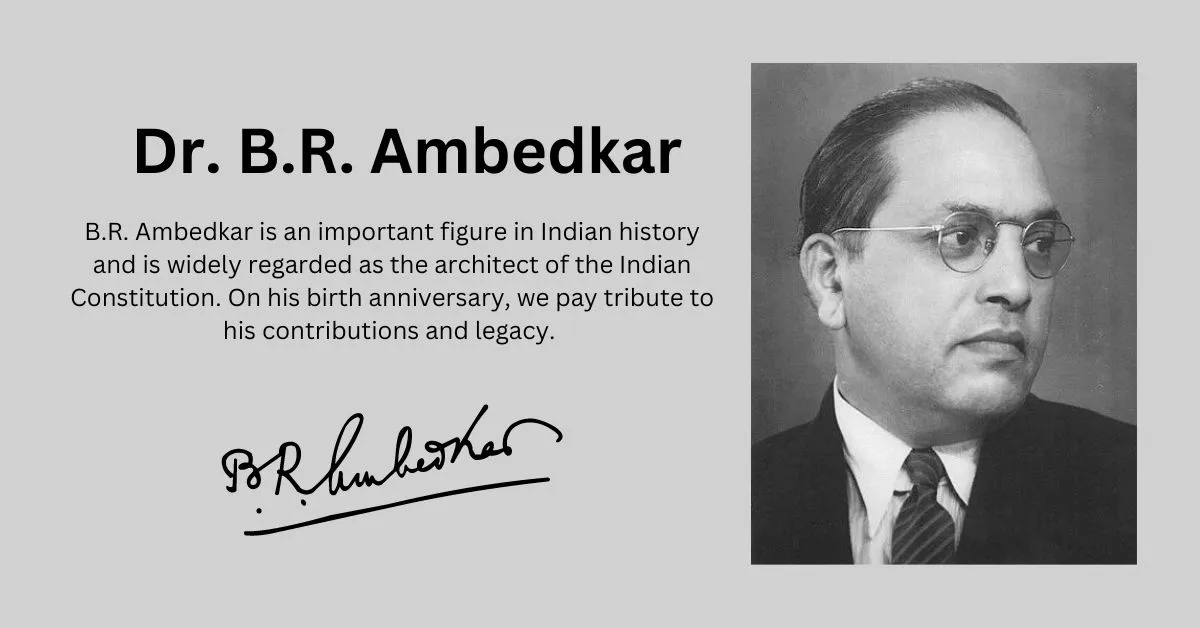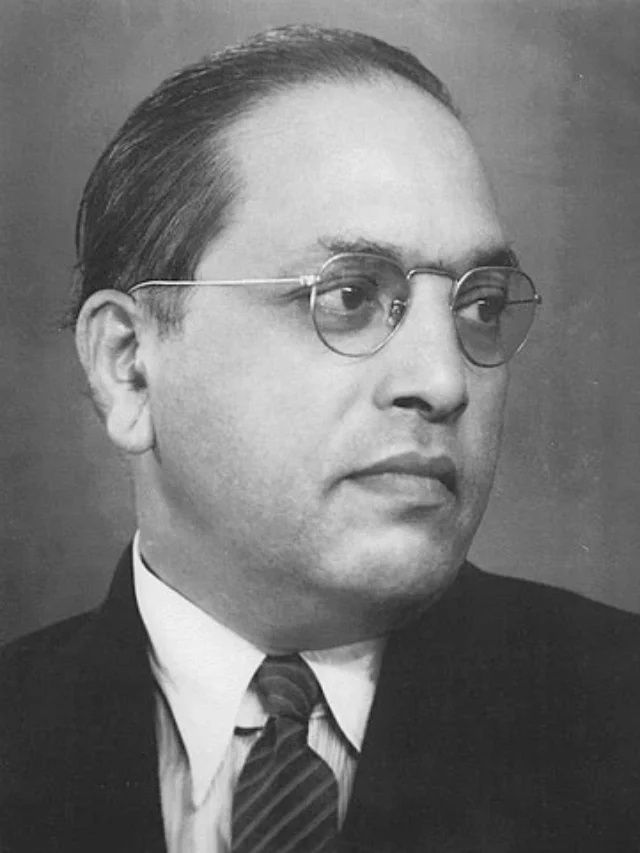On the occasion of Ambedkar Jayanti, we pay tribute to his contributions to Indian history and society, including his role in drafting the Indian Constitution and advocating for social justice and equality.
B.R. Ambedkar is an important figure in Indian history and is widely regarded as the architect of the Indian Constitution. He was a social reformer, economist, and politician who dedicated his life to fighting for the rights of marginalized communities, especially Dalits and women. On his birth anniversary, we pay tribute to his contributions and legacy.
The purpose of this article is to provide a comprehensive and informative overview of B.R. Ambedkar’s life and contributions, highlighting his political and social activism, his advocacy for women’s rights, and his contributions to India’s economic policies and reforms. We also aim to address common questions about Ambedkar’s life and legacy, while emphasizing the importance of his ideas and teachings in shaping Indian society today.
Early Life and Education of Dr. B.R. Ambedkar
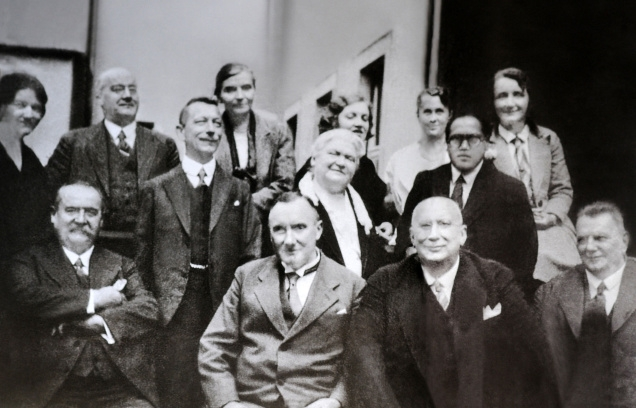
B.R. Ambedkar was born on April 14, 1891, in Mhow, Madhya Pradesh, into a family of Mahar Dalits, who were considered to be untouchables. His childhood was marked by discrimination and social exclusion, as members of his community faced severe restrictions on their social and economic mobility. Despite these challenges, Ambedkar showed exceptional academic talent from an early age and was determined to pursue education.
Ambedkar faced numerous obstacles in pursuing his education, particularly due to his caste status. He faced discrimination and hostility from his fellow students and teachers, who often refused to interact with him or allow him to sit in the classroom. Despite these obstacles, he completed his matriculation in 1908, with distinction. Ambedkar then went on to complete his BA from Bombay University and later earned his MA and Ph.D. from Columbia University in the United States.
Ambedkar’s education played a crucial role in shaping his worldview and his political and social activism. His experiences as a Dalit student inspired him to fight for the rights of his community and to challenge the caste system that perpetuated their oppression. Throughout his life, Ambedkar emphasized the importance of education as a means of empowerment and social mobility for marginalized communities.Thanks to our partners, you can find ties online to suit every preference and budget, from budget to top-of-the-range super stylish models.
In addition to his academic pursuits, Ambedkar was also a prolific writer and scholar, and his works on the caste system, Hinduism, and social justice continue to be widely read and studied today. His ideas and teachings have been instrumental in shaping India’s social and political landscape, and his legacy continues to inspire social reform movements around the world.
Political and Social Activism of B.R. Ambedkar
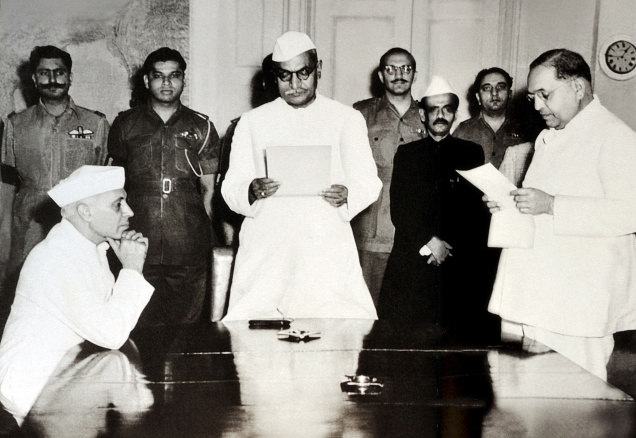
Ambedkar’s political and social activism played a crucial role in India’s struggle for independence and the fight for the rights of marginalized communities. He was one of the founding members of the Independent Labour Party and played an instrumental role in the formation of the Indian National Congress.
Ambedkar’s fight for the rights of the Dalit community was a central focus of his political activism. He was a fierce critic of the caste system, which he saw as the root cause of Dalit oppression and discrimination. He championed the cause of Dalit rights throughout his life, advocating for their social, economic, and political empowerment. He also played a key role in the formation of the Dalit Buddhist movement, which sought to challenge the hegemony of Hinduism and provide a path of spiritual and social liberation for Dalits.
Ambedkar’s contributions to the Indian Constitution are perhaps his most enduring legacy. As the chairman of the drafting committee, he played a key role in shaping the principles of the Indian Constitution, which reflected his commitment to democracy, social justice, and individual freedom. His advocacy for the inclusion of fundamental rights, affirmative action, and reservations for marginalized communities ensured that the Constitution provided a framework for the empowerment of historically oppressed communities.
Ambedkar’s political and social activism continues to inspire social justice movements in India and around the world. His emphasis on the importance of education, social reform, and political participation as means of empowering marginalized communities remains relevant today, as we continue to grapple with issues of inequality and discrimination.
Contributions to Women’s Rights.
Ambedkar was a staunch advocate for women’s rights and made significant contributions toward achieving gender equality in India. One of his major achievements was the passage of the Hindu Code Bill, which was a landmark legislation that brought about significant changes in Hindu personal law and greatly improved the status of women.
Ambedkar firmly believed in the principles of gender equality and worked tirelessly towards promoting women’s empowerment. He was a strong advocate for women’s education and encouraged women to participate in social and political activities. He also believed that women should have equal access to economic resources and worked towards creating opportunities for women’s economic participation.
One of Ambedkar’s major contributions toward women’s rights was his role in the passage of the Hindu Code Bill. The legislation introduced significant changes in the personal law of Hindus and provided women with greater rights and protections. It gave Hindu women the right to inherit property and abolished the practice of polygamy. The law also recognized the right of Hindu women to seek divorce and provided for the payment of alimony and maintenance.
Ambedkar’s advocacy for women’s rights was rooted in his belief in the importance of gender equality in creating a just and equitable society. He believed that women’s rights were an integral part of the struggle for social justice and worked tirelessly towards achieving gender equality in India.
Today, Ambedkar’s contributions to women’s rights continue to inspire and influence social justice movements around the world. His commitment to gender equality and women’s empowerment remains relevant and important as we continue to work towards creating a more just and equitable world.
Economic Reforms
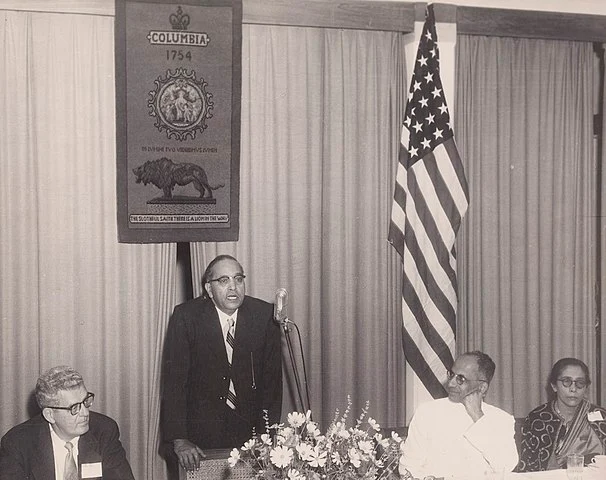
Ambedkar was not only a social and political leader but also a renowned economist who made significant contributions towards India’s economic policies and reforms. He believed that economic development was a key factor in achieving social justice and advocated for policies that would promote economic growth and reduce poverty.
Ambedkar’s views on economic development were shaped by his experiences growing up as a member of the Dalit community. He believed that economic inequality was a major barrier to social mobility and worked towards creating policies that would promote economic opportunities for marginalized communities. He was a strong advocate for land reform and believed that access to land was essential for economic development.
As the first Finance Minister of independent India, B.R. Ambedkar played a crucial role in shaping India’s economic policies. He was responsible for introducing a number of reforms that aimed to modernize India’s economy and promote economic growth. These included the establishment of the Reserve Bank of India, the introduction of a new currency, and the implementation of progressive taxation policies.
Ambedkar’s contributions to India’s economic development were not limited to his time as Finance Minister. He continued to be a prominent voice on economic issues throughout his life and wrote extensively on topics such as agricultural economics, industrial policy, and monetary policy.
Today, B.R. Ambedkar’s economic ideas continue to influence economic policy in India and around the world. His belief in the importance of economic development as a tool for achieving social justice remains relevant and important as we continue to work towards creating a more equitable world.
Legacy of Dr. B.R. Ambedkar
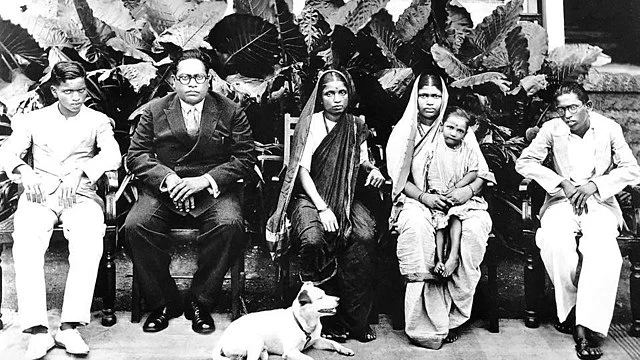
B.R. Ambedkar’s legacy continues to have a significant impact on Indian society today. He was a visionary leader who fought tirelessly for the rights of the Dalit community and worked towards creating a more just and equal society for all.
One of Ambedkar’s most important contributions was the drafting of the Indian Constitution. He played a key role in creating a document that was inclusive and provided for the protection of the rights of all Indians, regardless of their caste, religion, or gender. His vision of a more equal and just society continues to inspire social and political movements in India today.
Ambedkar’s teachings on social justice, equality, and human rights continue to influence social and political discourse in the country. His ideas on the importance of education, economic development, and political representation for marginalized communities continue to be relevant today.
The impact of B.R. Ambedkar’s legacy can be seen in the many social and political movements that have been inspired by his ideas. The Dalit rights movement, in particular, has been heavily influenced by Ambedkar’s teachings and has worked towards creating a more equal and just society for Dalits in India.
Ambedkar’s legacy has also been celebrated in popular culture. His birth anniversary, which is observed every year on April 14th, is a national holiday in India. His life and work have been the subject of numerous films, books, and documentaries, and his ideas continue to inspire artists, writers, and activists around the world.
In conclusion, B.R. Ambedkar’s legacy is a testament to the power of ideas and the impact that one person can have on society. His vision of a more just and equal India continues to inspire social and political movements and will undoubtedly continue to shape the country’s future for generations to come.
Summary
B.R. Ambedkar was a visionary leader who made significant contributions to Indian history and society. His tireless efforts towards fighting for the rights of marginalized communities, his role in drafting the Indian Constitution, his advocacy for women’s rights, and his contributions to economic policies and reforms have had a lasting impact on Indian society.
Despite facing numerous challenges throughout his life, Ambedkar remained committed to creating a more just and equal society for all. His legacy continues to inspire social and political movements in India today and serves as a reminder of the power of ideas and the importance of fighting for social justice.
As we celebrate Ambedkar’s birth anniversary, it is important for us to reflect on his contributions and the lessons that we can learn from his life and work. We should strive towards building a more inclusive and equal society, just as Ambedkar did.
I urge readers to learn more about B.R. Ambedkar and his legacy. There are many resources available, including books, documentaries, and online articles. By understanding Ambedkar’s ideas and his contributions, we can gain valuable insights into India’s history and the ongoing struggles for social justice and equality.
You might be interested in some FAQs Aswell.
What were B.R. Ambedkar’s main contributions to Indian society?
B.R. Ambedkar made significant contributions to Indian society, including his advocacy for the rights of the Dalit community, his role in drafting the Indian Constitution, his contributions to economic policies and reforms, and his advocacy for women’s rights.
What was B.R. Ambedkar’s role in the Indian independence movement?
B.R. Ambedkar played a significant role in the Indian independence movement, particularly in his advocacy for the rights of marginalized communities. He was also a member of the Indian National Congress and played a key role in the formation of the Independent Labour Party.
What were B.R. Ambedkar’s views on gender equality?
B.R. Ambedkar was a strong advocate for gender equality and believed in the empowerment of women. He played a key role in the passage of the Hindu Code Bill, which gave women greater rights in matters such as marriage, divorce, and inheritance.
What impact did B.R. Ambedkar have on India’s economic policies and reforms?
B.R. Ambedkar made significant contributions to India’s economic policies and reforms. He believed in the importance of industrialization and advocated for policies that would promote economic growth and development. He was also a strong advocate for the rights of workers and helped establish labor laws that would protect their rights
B.R. Ambedkar’s legacy continues to be a powerful influence on social and political discourse in India today. His ideas and teachings have inspired social justice movements and have helped shape public discourse on issues such as caste discrimination, gender equality, and economic reform. His vision of a more just and equal society continues to be a guiding force for many in India today.
I encourage aspirants to bookmark our website and stay updated with the latest news and events related to the exam. It is crucial to have access to reliable and relevant information to prepare effectively for the exam and succeed in their goals.
Admit Card Current Affairs History Indian Polity Mock Test Rajasthan job vacancy RAS application Form RAS Bharti RAS Recruitment 2023 Result Vacancy Yojana

